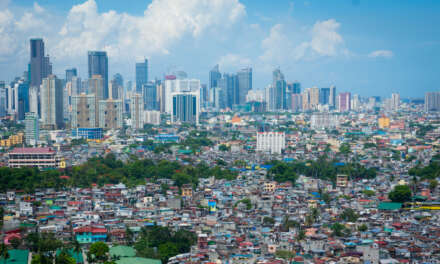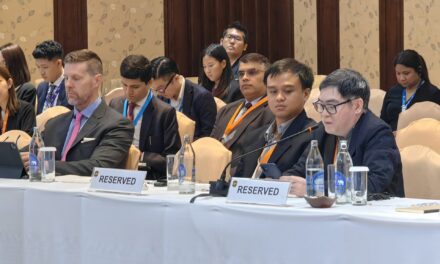by Rebeca Leonard
originally published in the BangkokPost
The governments of the world gather again to renew their commitment to sustainable development at the Rio+20 “Earth Summit”.
While Thailand will claim to be taking action to promote sustainable development by protecting its forests, it will say less about the social injustices created in the way it is going about doing this.
There are many examples that could be raised. One is the notorious “global warming” cases, in which at least 34 villagers in the Northeast and South of Thailand are being prosecuted and sued by Thailand’s Royal Forest Department and the National Park Department.
The lawsuits have resulted in small-scale farmers being required to pay hundreds of thousands of baht per head in damages for so-called environmental destruction in the forests.
From the perspective of someone who has just been deprived of their sole means of livelihood, sums of around US$12,000 (378,000 baht), the average total of damages sought from each farmer, are very large _ the equivalent of adding up the 300-baht minimum wage every day for around three and a half years.
While small-scale farmers are being prosecuted in this way, few cases, if any, have been brought against the wealthy investors who recently encroached onto forest land to plant large-scale rubber and oil palm plantations.
Other high-emitting sectors or individuals have not been subject to prosecution for environmental damage. Action by state authorities appears glaringly partisan.
Another level of injustice becomes evident when the “forest land” in question has been verified as community land, farmed for more than a generation.
In a recent turn of events, Amnuay Sangthong of Hat Soong village in Huai Yot district of Trang province was recorded on video by her daughter, pleading desperately with forest department authorities not to cut down the bridge leading to her community’s fields.
The video, shared via Facebook and broadcast on national television, shows forest officers paying little attention as one smokes calmly and others walk back and forth with rifles and chainsaws. The officers are shown an official letter from the Prime Minister’s Office to show their community has qualified for community titling, but the letter is dismissed as fake without even a cursory investigation.
Many communities on the slopes of the Bantad mountain range have farmed their fields for several generations, since before the declaration of the national park in 1984.
However, as the fields are now officially located within a national park, forest officers were able to obtain a conviction against the villagers on charges of encroachment, an offence against the National Parks Act.
When the park was declared, there was no participatory process, and the networks of forest communities had to mobilise strenuously to open channels of negotiation with the state and insist on their prior rights.
In Thailand around half the country is declared to be forest and belonging to the state, while over 10 million hectares has been declared conservation forest.
It is estimated that over half a million farming households were already settled and farming in those areas which are now considered, under Thai law, as “conservation forest” area. Most were never given the chance to exempt their fields from the conservation zone. Almost 30 years later, there is still no resolution to the ongoing conflict.
Villagers in the Bantad mountains were arrested when they felled their 30 plus year-old rubber trees for replanting.
Felling is a normal agricultural practice _ once the trees no longer produce latex, the farmers can generate an income from the sale of the wood, providing funds for reinvestment in a new crop of trees that will take seven years to mature before they are ready to be tapped for the first time.
Looking at the maps or aerial photographs of the area from an office far away, perhaps it was not surprising that the boundary lines of the park were drawn to include this area.
The villagers follow a traditional method of farming known as a suan som rom. Under this system, the rubber trees are scattered in among various other species (typically including fruit and nut trees such as durian, mangosteen, sator and betel nut, and vegetables like edible tea leaves and galangal).
In any other country, this kind of environmentally friendly agroforestry would be vigorously encouraged, even given financial support.
However, in Thailand the villagers have not only been arrested as criminals, but are being sued in the civil courts for “damages” to the “state-owned” forests.
The damages are totted up based on a standardised formula applied regardless of the facts of each case, with a set amount for causing increased temperatures, evapotranspiration, reduced rainfall, reduced soil infiltration, soil erosion and loss of soil nutrients as well as a catch all for destruction to the forest type under which they happen to be classified.
In the latest version of this formula, the reduced capacity to sequester carbon has been added to the calculations.
Some of these calculations appear preposterous _ the damage for increased temperatures is calculated on the basis of the cost of electricity to run a hypothetical giant airconditioning unit to reduce the temperature over one rai of land down to the “pre-destruction” tree tops temperature norm.
The heat during the day at tree peaks has been measured at 16 research stations throughout the country over the last three years. These are used as a proxy temperature “norm” in the area.
On 28 May, a group of 18 villagers and local organisations together with the Andaman Foundation filed a case with the Administrative Court to revoke use of the formula to calculate damages.
In the meantime, the departments are now proceeding to fell the young rubber trees and coconut trees that were replanted in the disputed fields.
They do this with chainsaws and pour poison over the stumps to stop them from sprouting again.
Kanya Pankitti, representative of the Land Reform Network of Bantad Mountain Range, said: “The officers are even chopping down the older rubber trees that are producing latex already.
“These are on our own traditional lands. They use chainsaws to chop them down. Coconut trees, betel nut trees, they are all being chopped down. For the larger trees which cannot be cut down, they scratch away the bark and poison them so they die. The men are fully armed.”
The villagers have tried hard for many years to resolve the conflicts. Along with hundreds of communities in Thailand those in the Bantad mountain range have sought to clarify and secure their rights to their land by establishing a “community title”.
Fifty-five applications for community titles have been passed by the responsible government committee since 2010, but only two titles have officially been conferred. Around four hundred other communities have submitted their evidence and are waiting for verification.
Reliant on the fertility of the environment, the villagers in the Bantad community title areas have agreed rules for managing their fields avoiding the use of fertilisers or chemical inputs.
While they tap less latex than those who farm the uniform monocultures promoted by the state, their plots provide food, an alternative stream of income and sustain a biodiverse ecosystem.
Equally importantly, their form of land use has not been known to cause landslides and flash flooding. The same cannot be said of the larger rubber monocultures that have next to no lower vegetation level and often do not have stabilising roots.
This difference will become increasingly important as sudden storms are becoming frequent in Thailand, and as the climate becomes more volatile.
The “global warming” forest prosecutions in Thailand are an extreme case of pointing the finger of blame for global problems at the wrong people.
Rebeca Leonard is research associate of Focus on the Global South.








